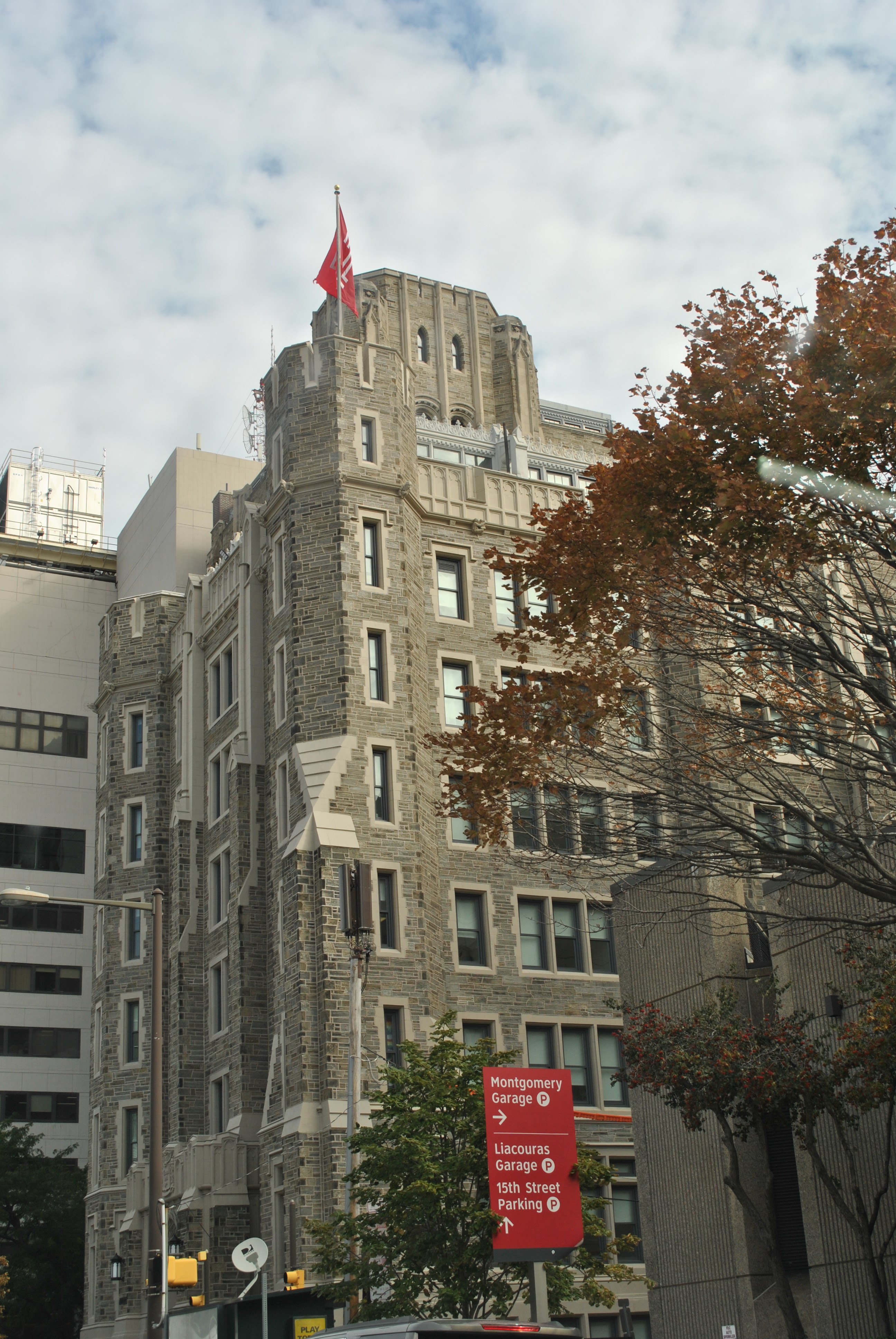Queer Places:
Transylvania University, 300 N Broadway, Lexington, KY 40508, Stati Uniti
Ohio State University, Columbus, OH 43210, Stati Uniti
University of Pennsylvania (Ivy League), 3355 Woodland Walk, Philadelphia, PA 19104
Temple University, 1801 N Broad St, Philadelphia, PA 19122, Stati Uniti
Vanderbilt University, 2201 West End Ave, Nashville, TN 37235, Stati Uniti
Spring Grove Cemetery, 4521 Spring Grove Ave, Cincinnati, OH 45232, Stati Uniti
 John Ercel Fryer, M.D. (November 7, 1937 –
February 21, 2003) was an American psychiatrist
and gay rights activist best known for his anonymous
speech at the 1972 American Psychiatric Association (APA) annual
conference where he appeared in disguise and under the name Dr. Henry
Anonymous. This event has been cited as a key factor in the decision
to de-list homosexuality as a mental illness from the APA's
''Diagnostic and Statistical Manual of Mental Disorders''. The APA's
"John E. Fryer, M.D., Award" is named in his honor.[1]
John Ercel Fryer, M.D. (November 7, 1937 –
February 21, 2003) was an American psychiatrist
and gay rights activist best known for his anonymous
speech at the 1972 American Psychiatric Association (APA) annual
conference where he appeared in disguise and under the name Dr. Henry
Anonymous. This event has been cited as a key factor in the decision
to de-list homosexuality as a mental illness from the APA's
''Diagnostic and Statistical Manual of Mental Disorders''. The APA's
"John E. Fryer, M.D., Award" is named in his honor.[1]
Fryer was born in Winchester,
Kentucky, to Ercel Ray Fryer and Katherine Zempter Fryer. He was in the second grade of his elementary school
at 5 years old,[2] graduated from high school at
15, and earned a bachelors degree from Transylvania College in
Lexington, Kentucky, when he was 19. He received
his medical degree from Vanderbilt University in Nashville,
Tennessee, in 1962, and did his medical internship
at Ohio State University.[3] He began his psychiatric residency at the Menninger
Foundation in Topeka, Kansas, but left on the advice of a
psychoanalyist due to the depression caused by having to hide
his homosexuality; he later described Menninger as having "a lot of
homophobia." He moved to Philadelphia, where he
held a residency at the University of Pennsylvania,
but was forced to leave because of his homosexuality; he completed his
residency in 1967 at Norristown State Hospital.[4]
Around the mid-1960s, Fryer
began to receive referrals from Alfred A. Gross,[5] the Executive
Secretary of the George W. Henry Foundation – co-founded by Gross
and Henry in 1948 to help those "who by reason of
sexual deviation are in trouble with themselves, the law or society"; to treat homosexual men who had run afoul of the
law, and to testify on their behalf in court cases.
Fryer joined the medical faculty of Philadelphia's Temple
University in 1967. As of January 1969, he was an instructor in
psychiatry there.[6] He worked in the community health center in North
Philadelphia, and became active in the Health Care and Human Values
Task Force, using a $5,000 grant to that organization to create a group
he called "Ars Moriendi" to deal with matter concerning the professional
reaction to death and dying. This later became the International Work
Group on Death, Dying, and Bereavement.

Temple University, Philadelphia, PA
Fryer
became a professor at Temple, both of psychiatry, and of family and
community medicine. He specialized in the treatment of drug and alcohol
addiction as well as in death and bereavement.[7] Sometime
after 1973, he began treating gay men with AIDS who were dying,
seeing them in his home office rather than in his practice at Temple,
for reasons of patient confidentiality. He was involved
in setting up Physicians in Transition, Temple's Family Life Development
Center, the APA's International Work Group on Death, Dying, and
Bereavement and the Philadelphia AIDS Task Force. In 1980, at the behest
of Dame Cicely Saunders, founder of London's St Christopher's
Hospice, he took a sabbatical from Temple and helped to restructure
the hospice's education department. He retired from
Temple in 2000.
In 2002, it was reported that
Fryer had accepted a position at a hospital in the Northern
Territory of Australia, but he never took up that
post.
Fryer was also a musician, playing the organ. For 30 years
was the choirmaster of St. Peter's
Church in the Germantown neighborhood of
Philadelphia where he lived;[8] he
also played the organ for Temple University graduations.
Fryer was being treated for diabetes and pulmonary
sarcoidosis, and eventually died from gastrointestinal bleeding
and aspiration pneumonia in 2003.[9][10]
My published books:


BACK TO HOME PAGE

https://en.wikipedia.org/wiki/John_E._Fryer
 John Ercel Fryer, M.D. (November 7, 1937 –
February 21, 2003) was an American psychiatrist
and gay rights activist best known for his anonymous
speech at the 1972 American Psychiatric Association (APA) annual
conference where he appeared in disguise and under the name Dr. Henry
Anonymous. This event has been cited as a key factor in the decision
to de-list homosexuality as a mental illness from the APA's
''Diagnostic and Statistical Manual of Mental Disorders''. The APA's
"John E. Fryer, M.D., Award" is named in his honor.[1]
John Ercel Fryer, M.D. (November 7, 1937 –
February 21, 2003) was an American psychiatrist
and gay rights activist best known for his anonymous
speech at the 1972 American Psychiatric Association (APA) annual
conference where he appeared in disguise and under the name Dr. Henry
Anonymous. This event has been cited as a key factor in the decision
to de-list homosexuality as a mental illness from the APA's
''Diagnostic and Statistical Manual of Mental Disorders''. The APA's
"John E. Fryer, M.D., Award" is named in his honor.[1]

